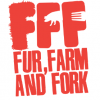Hi EvanAUS,
I have an SQF audit scheduled for Monday/Tuesday next week. Could you please expand on what type of major NC's are being issued against std 2.7.1 and 2.7.2? I am interested what these might be and would like to ensure I have covered the NC's.
THanks 
I have conducted 5 x SQF Ed.8 Manufacturing and Quality audits, 1 x BRC audit and 3 x FSSC22000 audits so far this year (note there is no such thing as a "Level 2" SQF audit or certificate anymore - if you were audited to Level 3 in Ed.7.2, you will now receive 2 certificates and the Quality audit will add 4 hours to the duration of your audit). 4 of the 5 SQF audits have resulted in Major NCs to 2.7.1 and 2.7.2, because the clients had done nothing to meet the clauses in the Edition 8 Standard - simply continued with the Edition 7.2 Food Defense and Food Fraud "assessments". The Manufacturing Standard states:
2.7 Food Defense and Food Fraud 2.7.1 Food Defense Plan (Mandatory)
2.7.1.1 The methods, responsibility and criteria for preventing food adulteration caused by a deliberate act of sabotage or terrorist-like incident shall be documented, implemented and maintained.
2.7.1.2 A food defense plan shall include:
i. The name of the senior site management person responsible for food defense;
ii. The methods implemented to ensure only authorized personnel have access to production equipment and vehicles, manufacturing and storage areas through designated access points;
iii. The methods implemented to protect sensitive processing points from intentional adulteration;
iv. The measures taken to ensure the secure receipt and storage of raw materials, packaging, equipment and hazardous chemicals;
v. The measures implemented to ensure raw materials, ingredients, packaging materials, work-in progress, process inputs and finished products are held under secure storage and transportation conditions; and
vi. The methods implemented to record and control access to the premises by employees, contractors, and visitors.
2.7.1.3 The food defense plan shall be reviewed and challenged at least annually.
2.7.1.4 Records of reviews of the food defense plan shall be maintained.
2.7.2 Food Fraud
2.7.2.1 The methods, responsibility and criteria for identifying the site's vulnerability to food fraud shall be documented, implemented and maintained. The food fraud vulnerability assessment shall include the site's susceptibility to product substitution, mislabeling, dilution, counterfeiting or stolen goods which may adversely impact food safety.
2.7.2.2 A food fraud mitigation plan shall be developed and implemented which specifies the methods by which the identified food fraud vulnerabilities shall be controlled.
2.7.2.3 The food fraud vulnerability assessment and mitigation plan shall be reviewed and verified at least annually.
2.7.2.4 Records of reviews of the food fraud vulnerability assessment and mitigation plan shall be maintained.
If you have evidence that you have addressed these requirements, you won't receive a NC against each section.
These clients have also received a Minor NC (deserved a Major, but would have failed the audit) against 2.1.2.2 The senior site management shall make provision to ensure food safety practices and all applicable requirements of the SQF System are adopted and maintained.
All of these clients dropped from either E or G Grade to C grade and 1 of them failed - because they failed to address the new requirements of Edition 8.
It is now possible to raise NCs against Management Responsibility when any part of the SQF System has not been adopted and maintained.
I am staggered that idealdreams did not fail the initial Edition 8 Manufacturing audit. The SQF Standard is becoming more prescriptive (like BRC) with each revision/edition - because the integrity of the Standard is compromised when Auditors "go easy".
I continue to be amazed that receiving NCs at external audit is considered to be a bad thing. It's a GOOD THING because it gives you the opportunity to fix issues - and increases the integrity of your SQF System so that you can sleep easy at night knowing that you have done everything in your power to produce safe food.















